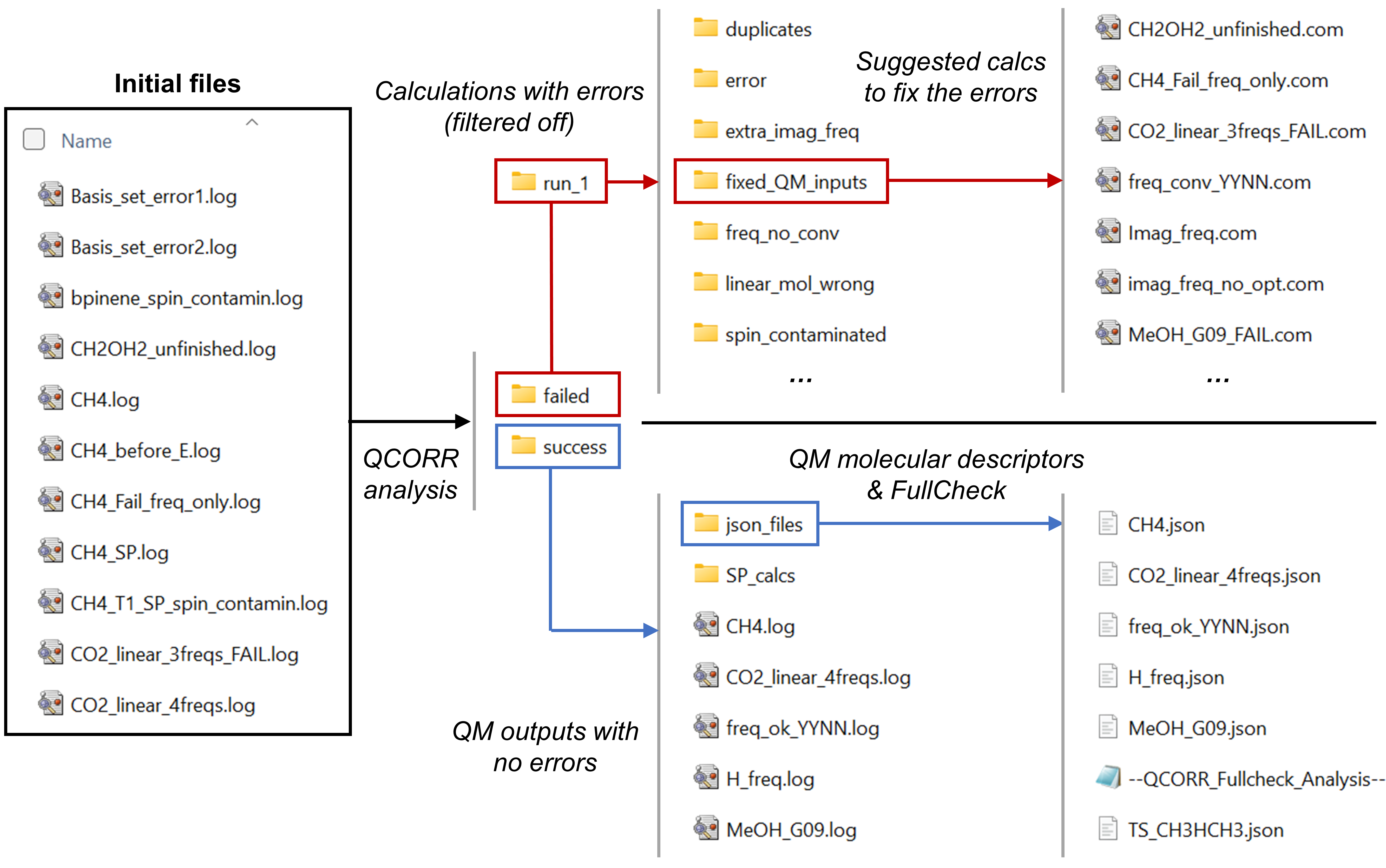Correction of QM Output
The QCORR module focuses on the analysis and correction of the output files of QM calculations. Here we refer to correction as:
Generate new inputs from calculations that have an error termination.
Generate new inputs for minima containing a small imaginary frequency
Ensure that all provided files have the same level of theory, grid size, program, version, etc.
The following scheme shows how QCORR works and how it sorts the calculations.
Analyzing the output files
We start by importing the modules.
from pathlib import Path
from aqme.qcorr import qcorr
Then we list the files that we want to analyze. In this case we are going to analyze Gaussian16 output files. We are going to assume that we have our files in the folder 'calculations'
folder = Path('calculations')
files=[str(filepath) for filepath in folder.glob('*.log')]
Finally we run the analysis of the files.
qcorr(files=files,
freq_conv='opt=(calcfc,maxstep=5)')
Here we specify the freq_conv which will attempt to fix calculations whose optimization ended normally but whose frequency calculation did not.
Optionally we may include the extension of the initial input files and their location:
qcorr(files=files,
freq_conv='opt=(calcfc,maxstep=5)',
isom_type='com', # Extension of the initial input files
isom_inputs=folder) # Folder with the initial input files
If we want to check the .json files that we have generated in a separatedly we can use the full_check function which will only check if all calculations were done using the same theory level, grid size, program and version, solvation ...
from aqme.qcorr import full_check
files = [str(filepath) for filepath in (folder/'json_files').glob('*.json')]
full_check(destination_fullcheck=folder,files=files)
If we instead wanted to skip the checks and generate the .json files containing information about our calculations we can use the fullcheck keyword.
qcorr(files=files,
fullcheck=False)
